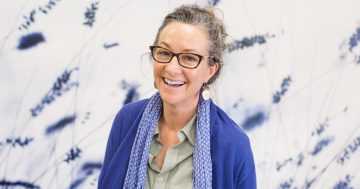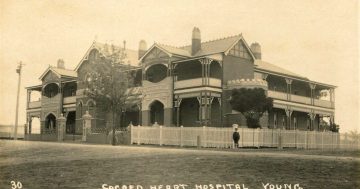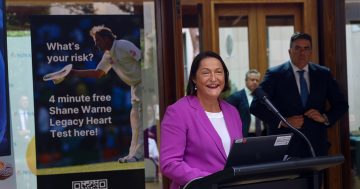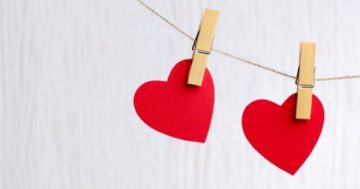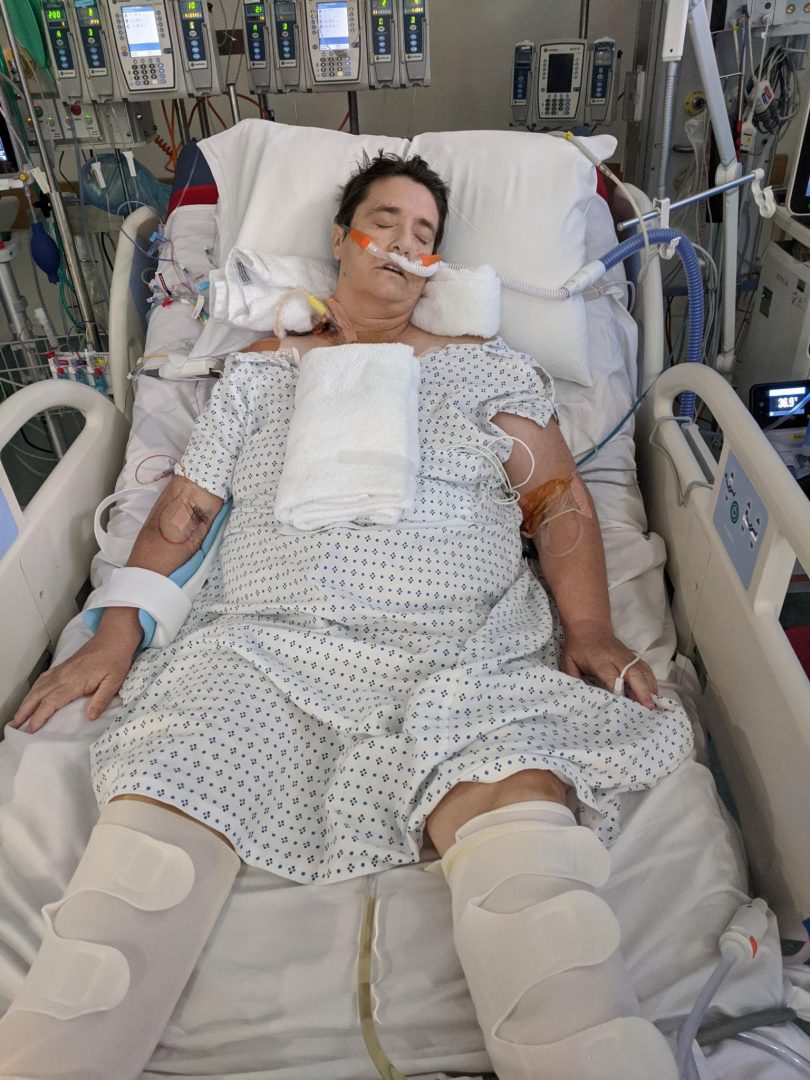
Leanne waiting on a heart transplant in a Sydney hospital after an angiogram went wrong. Photo: Supplied.
A year ago, Leanne (surname withheld) was working as a dental assistant in remote Aboriginal communities in the Northern Territory.
Today, she’s recovering from a major heart transplant at home in the village of Tarago, in the NSW Southern Tablelands.
The transplant saved Leanne’s life, but it’s been a long journey and she still has a way to go to get her life back on track.
Leanne’s husband, Ken, has had to take a year off work to be with her, and she still struggles to walk without becoming breathless, or move without shaking, and is fighting off infections because her immune system is extremely low.
She wants to share her story so more people understand the challenges transplant patients face, particularly those living regionally, after reading about a charity called Herd of Hope.
The charity provides support for transplant recipients and donor families in rural and regional areas. Recently, Herd of Hope started its new Shearer’s Gift initiative using funds raised by shearer Sam Picker who lives nearby to Leanne.
The Shearer’s Gift initiative is a pack for patients containing an Opal transport card, Uber Eats vouchers, maps, snacks, a toothbrush and toothpaste for rural transplant patients and their carers after they’re discharged from hospital.
Most rural transplant patients will need to spend a month away from home as their surgery and recovery will be handled by a major metropolitan hospital, according to Herd of Hope.
Leanne didn’t know about Herd of Hope when she had her heart transplant, but wishes she had.
“We had no idea how hard it was to be in this situation,” she says.
“I think people need to know how hard it is so they understand the need for this charity and others.”
The above photo in this story was taken in July 2020, when Leanne’s ordeal began.
As a healthy 49-year-old who was training for a half-marathon, she went for a routine check-up with her GP.
The doctor asked to do an electrocardiogram (ECG) of Leanne’s heart and found something that didn’t look quite right.
Leanne was sent for an angiogram to check if it was serious and during the procedure, which involves a small catheter going through the heart, the doctor accidentally hit an artery.
“It bled unbelievably, causing many clots in my legs, arms, heart, lungs and brain,” says Leanne. “My heart was dying by the hour in the end.”
She was among the fewer than one per cent statistically who experience complications during an angiogram.
Leanne was flown to Sydney for triple bypass and double valve replacement surgery to keep her alive until a new heart became available.
“I was in hospital for four months on a desperate, last-resort machine that’s called an ECMO,” she says.
An ECMO, or extracorporeal membrane oxygenation, temporarily takes over the work of a patient’s lungs and/or heart.
“ECMO damaged my muscles and nerves, which resulted in a loss of strength, balance and coordination,” says Leanne. “I still struggle and shake constantly.”
After the four months, she was sent home, but thought she was going to die. However, at 4:20 am on 28 October, 2020, she received a call to say doctors had found her a new heart.
Organ donation is a lifesaving gift.
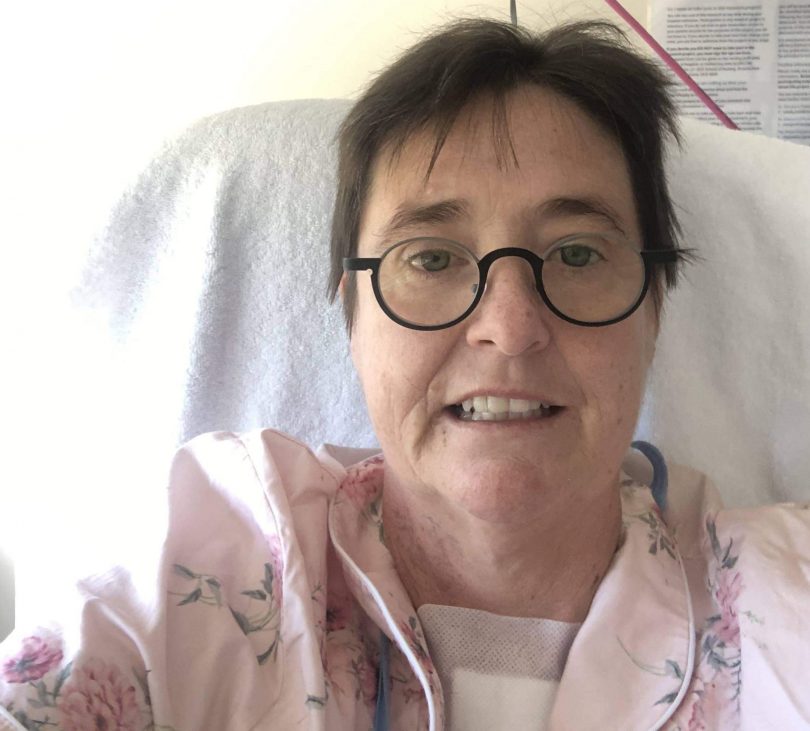
Leanne in hospital after the heart transplant operation. Photo: Supplied.
According to Transplant Australia, the majority of Australians are registered as organ donors (76 per cent), helping the 1700 people on the waiting list.
Leanne had to stay close to the hospital in Sydney for three months after the transplant for check-ups twice per week.
Ken spent the time between Sydney and Tarago, returning once a week to restock food for their neighbour to give to their animals.
“If you live more than 100km from the hospital, the government bulk bills your accommodation, but it’s still hard with food and parking, which was $30 a day,” says Leanne.
The couple was pleased to eventually return home, but said the in-home care services were limited because of where they live.
“We have had a lot of support while in hospital, but once home, nothing,” says Leanne. “No care service would come out here so Ken had to stay home to shower and feed me.”
Eight months on from the transplant surgery, Leanne only has to visit the hospital weekly, but still relies on Ken to take her.
“I can walk about three-quarters of a kilometre now without rest,” she says. “New pills have eased the shaking to a degree, but my brain is still not connecting to the right parts. For example, yesterday my watch band was loose so I tightened my shoelaces.
“My right leg where the vein was taken for the bypass is numb and I can’t hold the accelerator in the car for long, which means I can’t go far. This is all getting better, but slowly.”
For more information, visit Herd of Hope.






